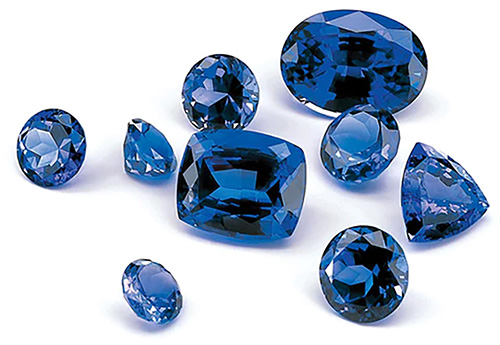
Nuvia has been trying to change data centers by designing high-performance chips that are more power efficient like mobile processors.
Getty Images
Qualcomm is betting big on a company designing powerful but power-efficient chips for data centers — $1.4 billion big. The company on Wednesday said it has reached a deal to acquire Nuvia, a two-year-old startup run by former Apple chip executives.
But Qualcomm won’t just be aiming its newly acquired technology at servers. Instead, it plans to use Nuvia CPUs — the brains of devices — in everything from its smartphone chips to its laptop processors and automotive components. That could mean much more powerful and battery efficient Samsung Galaxy smartphones, Lenovo laptops and General Motors cars.
While Nuvia and Qualcomm both use Arm technology for their processors, Nuvia designs its own cores, allowing it to customize them for high performance and power efficiency better than Qualcomm is able. That’s especially important as mobile-like chips expand to more areas, 5G becomes widespread and consumers and businesses demand more and more battery life from their devices.
“5G, the convergence of computing and mobile architectures, and the expansion of mobile technologies into other industries are significant opportunities for Qualcomm,” Cristiano Amon, Qualcomm’s president who will take on the role of CEO this summer, said in a press release. “Together [with Nuvia], we are very well positioned to redefine computing and enable our ecosystem of partners to drive innovation and deliver a new class of products and experiences for the 5G era.”
Qualcomm has long been known as the world’s biggest wireless chipmaker, and it counts Samsung, Apple and virtually all major handset makers in the world as its customers. The aim with mobile chips has long been to be as powerful as possible while consuming low amounts of power. In recent years, Qualcomm also has pushed its components into computers, cars and various other products. It’s likely that Samsung’s new Galaxy S21 lineup, expected to launch Thursday at the company’s first Unpacked of 2021, will use Qualcomm Snapdragon 88 processors. And future phones could benefit from Nuvia’s high-performance, battery efficient cores.
Qualcomm’s acquisition of Nuvia also could give Arm PCs the boost they need. While Apple’s first Arm-based computers have earned rave reviews, early Windows PCs that use Qualcomm chips have been described as under powered. That could change when the company incorporates Nuvia’s technology into its processors. Arm CEO Simon Segars told CNET’s Stephen Shankland that Apple’s M1-based Macs likely will kickstart the Arm-based PC era.
Nuvia overall will help Qualcomm better compete against Apple, which has become a leader when it comes to chip performance. Apple’s A Series chips have long powered its iPhones and iPads, and late last year, it introduced its first computers that use its own M1 processors instead of chips from Intel. The new computers have powerful performance, but also sip battery life, largely because of the innovations Apple has packed deep inside its chips.
Nuvia’s co-founders — Gerard Williams III, Manu Gulati and John Bruno — previously held roles in Apple’s semiconductor design business before starting their own company. Williams, who serves as Nuvia’s CEO, led the design of every Apple chip core from the A7 to the A12X before he left the company in March 2019. Before joining Apple in 2010, Williams for 12 years worked at Arm, the company whose designs are used in virtually all mobile processors. Gulati and Bruno also spent time at Google before co-founding Nuvia. The three, along with Nuvia’s other employees, will be joining Qualcomm.
“CPU performance leadership will be critical in defining and delivering on the next era of computing innovation,” Williams said in a press release. “The combination of Nuvia and Qualcomm will bring the industry’s best engineering talent, technology and resources together to create a new class of high-performance computing platforms that set the bar for our industry.”
Nuvia’s buzz
Nuvia does not yet have a working product, but the company has captured the attention of many big players in the tech industry. In September, it raised $240 million from Peter Thiel’s Mithril Capital, Dell’s venture arm, Marvell’s founders and various other firms. At the time Nuvia said it expected to have a product in customers’ hands in 2022. In total, Nuvia raised just shy of $300 million before the acquisition, and it has over 200 employees.
It also has been sued by Apple. The iPhone giant filed a lawsuit against Williams in December 2019 for breach of contract. It accused him of starting Nuvia while still at Apple and said he recruited his former colleagues. Williams countersued in February 2020, alleging Apple has been doing the same thing it accused him of — trying to recruit his employees.
Qualcomm’s press release about the acquisition contained quotes from its partners, applauding the purchase. They included Panos Panay, chief product officer of Microsoft; Hiroshi Lockheimer, senior vice president of platforms & ecosystems at Google; TM Roh, president and head of mobile communications at Samsung; Xiaomi CEO Lei Jun and executives from Bosch, Continental, General Motors, HMD, Honor, HP, Lenovo, LG, OnePlus, Oppo, Panasonic, Vivo, Renault, Sharp and Vivo.
“Compute performance, connectivity and power efficiency are critical ingredients that make the billions of Android and Chrome OS devices shine,” Google’s Lockheimer said. “The addition of Nuvia extends Qualcomm’s capabilities in these three areas, and we’re excited to see the next generation of Snapdragon with Nuvia.”






